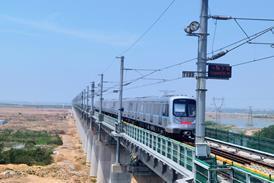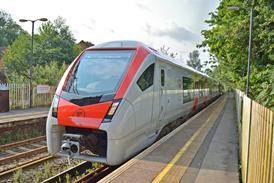INTRO: This month sees the first application of passenger information systems being driven directly from the data provided to German Railway’s network management centre in Frankfurt. Six out of seven regional operations centres that will eventually take over signalling control functions have now been commissioned. Murray Hughes reports from Frankfurt
HUGE savings in staff costs are in prospect on German Railway. They will arise as DB implements plans to transfer the signalling function from signalboxes to seven regional operations centres (BZ). Generally, this will only happen where solid-state interlockings have been installed. The concept is firmly in place, but the process will take time, partly because of the cost of investing in new equipment and partly because of the employment implications. One justification for forging ahead is that computerised control of signals is safer than leaving it to human beings.
Located in Frankfurt-am-Main, Duisburg, Hannover, Leipzig, Karlsruhe and Berlin, six of the seven BZs are up and running, and the seventh in München is due to open in spring 2001. Initially, the seven centres replace 15 similar control offices where not long ago staff laboured over paper train timetable graphs with blue and red pencils to plot the actual running times of trains against those in the timetable. On the basis of this information, they advised signalling staff about train priorities, connections to be held, special stops and other changes to the planned service.
The principle of keeping regulation and control of signals and points separate remains, but the regulators in the new control centres have access to powerful computer tools that allow better management of the services. Although the regulation and control functions will continue in parallel, it is clear that in time the number of signalboxes will be substantially reduced.
In 1991 DB had 7500 signalboxes. Now there are 6700, and the number will continue to fall steadily as more electronic control centres with automatic route setting and solid-state interlockings are commissioned. DB’s first electronic signalling centre was commissioned in 1988, and since then 87 more have followed. Another 200 are planned by 2006, requiring investment of DM4·5bn.
So far, the only BZ to include signalling staff is Berlin, but the other centres have all been designed with this in mind. Thus the Frankfurt BZ will employ staff who currently control trains over 2067 track-km stretching from Kassel to Darmstadt, with around 6000 train movements a day. Two control desks have been set aside for staff to handle trains on the K




















